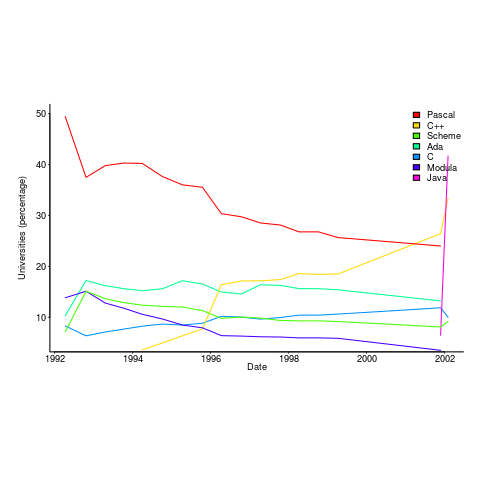Derek Jones from The Shape of Code
A scientific paper is supposed to contain enough information that somebody skilled in the field can perform the experiment(s) described therein (issues around the money needed to obtain access to the necessary equipment tend to be side stepped). In addition to the skills generally taught within a field, every niche has its specific skill set, which for leading edge research may only be available in one lab.
Bespoke software has become an essential component of many research projects, and the ability to reimplement the necessary software is rarely considered to be a necessary skill. Some researchers consider software to be “just code” whose creation is not really a skill that is worth investing in acquiring.
There is a widespread belief in academic circles that the solution to the issues created by bespoke software is for researchers to release the source code of the software they create.
Experienced developers will laugh at the idea that once the source code is available, running it is straight forward. Figuring out how to run somebody else’s code can be a very time-consuming process, particularly when the person who wrote it is relatively inexperienced.
This post is about the social issues around the bespoke research code being made available, and not the technical issues likely to be encountered in building it on another researcher’s computer.
Lots of researchers do make their code available, without being asked, and some researchers actively promote the software they have written. In a few cases, active software ecosystems have sprung up around a research topic, e.g., Astropy and SunPy.
However, a lot of code never gets released. Based on my own experience of asking for code (in the last 10 years, most of my requests have been for data), reasons given by researchers for not making the code they have written available to others, include:
- not replying to email requests for the code,
- not sure that they still have the all code, which is taken as a reason for not sending what they have. This may also be a cover story for another reason they don’t want to admit to,
- they don’t want the hassle of supporting other users of the code. Having received some clueless requests for help on software I have released, I have sympathy for this position. Sometimes pointing out that I am an experienced developer who does not need support, works, other times it just changes the reason given,
- they think the code is poorly written, and that this poor of quality will make them look bad. Pointing out that research code is leading edge (rare true, it’s an attempt to stroke their ego), and not supposed to be polished, rarely works for me. Some people are just perfectionists, with a strong aversion to showing others anything that has not been polished to death,
- a large investment was made to create the software, and they want to reap all the benefits. I have a lot of sympathy with this position. Some research fields are very competitive, or sometimes the researcher just wants to believe that they really will get another grant to work on the subject.
Researchers who create and support research software complain that they don’t get any formal recognition for this work; which begs the question: why are you working on this software when you know that you are unlikely to receive any recognition?
How might researchers receive recognition for writing, supporting and releasing code?
Citations to published papers are a commonly used technique for measuring the worth of the work done by a researcher (this metric is used when evaluating people for promotion, awarding grants, and evaluating departments), and various organizations are promoting the use of citations for software.
Some software provides enough benefits that the authors can write a conventional paper about it, e.g., a paper on Astropy (which does not cite any of the third-party packages used in its own implementation). But a lot of research software does not have sufficient general appeal to warrant a paper.
Are citations for software a good idea?
An important characteristic of any evaluation metric is how hard it is to fake a good score.
Research papers are rated by the journal in which they are published, with each journal having its own rating (a short-term metric), and the number of times the paper is cited (a longer-term metric). Papers are reviewed, with many failing to be accepted (at least by the higher quality journals; there are so-called predatory journals that will publish anything for a fee).
While there are a few journals where source code may be an integral component of a paper, most research software is published on sites having minimal acceptance criteria, e.g., Github.
Will citations to software become as commonplace as citations to other papers?
I regularly read software papers that cites software packages, but this practice is a long way from being common.
Will those awarding job promotions and grants start to include software creation as having a status comparable to published papers? We will have to wait and see.
Will the lure of recognition via citations increase the quantity of source being released?
I don’t think it will have any impact until the benefits of software citations are seen to be worthwhile (which may be many years away).

